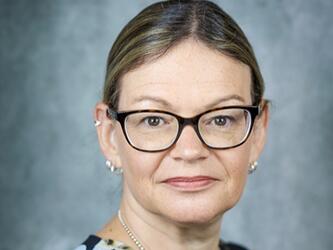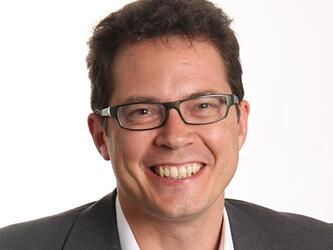Why did we all ‘fall into’ research?

As of 2025, the UK market research industry is valued at an enormous £9bn and is responsible for more than 50% of European research output. So, if the UK is such a powerhouse of the industry, why is awareness of research as a career so low?
Regardless of how long you’ve been in research, you’ve likely had a chat with your colleagues about their background prior to entering the field. No doubt you will have been a little surprised to hear the range of results (but maybe found it a bit reassuring because actually, your experience isn’t perfectly matched to research either).
At some point in the conversation, you will inevitably hear something along the lines of ‘everyone just falls into research’. This sentiment is something I have heard echoed regularly throughout my career, and seems to be applicable to almost everyone, regardless of position, academic background and research sector.
Yet seemingly despite the odds, here we all are. The market research industry has around 50,000 employees. It is an incredibly wide-ranging industry with a match for every skillset, regardless of whether your talent lies in maths, psychology, marketing, politics or linguistics.
Why is awareness so low?
So, given that a career in research would be compatible with such a broad audience, why are we all stumbling onto it instead of seeking it out? With the help of some of the MRS &more team, I’d like to propose a few theories.
- We fly under the radar vs more visible industries. If you asked people to list careers in the film and TV industry, I’d hazard a guess that they would think about producing and acting before lighting specialists and visual effects coordinators, although both play a crucial role in the final output. Similarly, in business, market research often goes unnoticed compared to more prominent fields such as advertising and sales (although ironically, we are often driving both behind the scenes).
- Our complicated vocabulary. What do an insight consultant, data specialist, and trends analyst have in common? If I haven’t worked in research before, I have absolutely no idea! The nature of research is very multifaceted, and so we often find ourselves wearing many hats: insight managers, data analysts, moderators, behavioural economists, which frequently make no explicit reference to ‘research’.
- Misconceptions about research. I regularly experience friends and family mixing up the terms ‘marketing’ and ‘market research’. Even beyond this hurdle, when asked about my job, I have noticed that the term market research is often tied to a very specific (and outdated!) image – a polite nod followed by “you’re one of those people who knock on doors and ask people to answer questions”.
Experiences of falling into research
I was mid-degree studying marketing with psychology and by pure chance saw an advertisement online for a summer internship in research and thought it seemed interesting, so applied on a whim. I found out after applying the job was in New York, so had the pleasure of starting a career and experiencing a new life adventure all at the same time.
So, what about others?
Rafaella Dhelomme, consultant, MRS &more DEI champion
I ended up in research thanks to a professor in uni. She was my social and cultural psychology professor and needed a teaching assistant – I worked for her for a year or so and fell in love with academic research. Then when I moved to my MSc, I feel like I burned out a bit on that end, but kept looking towards cultural research in different areas, and that’s how I found my first market research job.
Neve Savage, qualitative research consultant, MRS &more leadership team
I found out about market research specifically during a final year module of my psychology degree about ‘Judgement and decision making’. I felt like it was something I would enjoy because I’ve always been curious and also always weirdly liked research methods… After Uni, I looked into companies and directly messaged Savanta (there wasn’t even a role going!) and after a couple quant interviews, I found my place in a qual only role that suited me perfectly.
Jayant Srivastava, insight manager, MRS &more DEI champion
I very much did fall into research as a career. I fully panicked after the completion of my bachelor’s degree and ended up doing a master’s in marketing. Thankfully, I discovered during this that I enjoyed understanding consumer behaviour and working with datasets. Fast forward to the end, I started a graduate scheme in data analytics – where I realised what I really enjoyed was the research element (ie the why behind the what), and that’s what I’ve focused on ever since.
Jane Frost, chief executive, MRS
I was a marketing trainee at Unilever, becoming the first female brand manager on Persil. We were trained about the power of research to release funding and investment, so I bribed the head of continuous market research for the latest reports. When I worked later at HMRC, I deployed research to change policy and really obdurate cultural attitudes. The segmentation work I led there is still held up as best in class in government. In times of budget cuts I always got money back for research because what was delivered was so actionable.
Thankfully, there are already a lot of active initiatives to help raise the profile of research:
- Widening the pathway into research – the market research executive apprenticeship and the MRS schools outreach programme
- Increasing awareness down traditional academic routes – the MRS university roadshow
- Demystifying the research world – resources such as the career pathways tools
There’s also the opportunity to get guidance directly from researchers who have a little more knowledge- the MRS &more team is dedicated to helping the career growth of younger audiences and those new to research. They (including me!) are always open to chatting and providing advice, and often host events dedicated to helping newer recruits grow their network.
It has always felt very unfortunate to me that such a significant and diverse industry faces such a fundamental challenge. However, by persisting in our efforts to raise awareness, increase accessibility and foster inclusivity, we can encourage younger audiences to make a deliberate step (not stumble or fall) into a career they will hopefully find very rewarding.
Christina Tarbotton is research director at Boxclever and a member of the MRS &more leadership team

We hope you enjoyed this article.
Research Live is published by MRS.
The Market Research Society (MRS) exists to promote and protect the research sector, showcasing how research delivers impact for businesses and government.
Members of MRS enjoy many benefits including tailoured policy guidance, discounts on training and conferences, and access to member-only content.
For example, there's an archive of winning case studies from over a decade of MRS Awards.
Find out more about the benefits of joining MRS here.














0 Comments